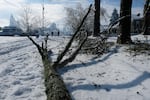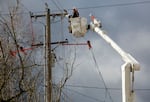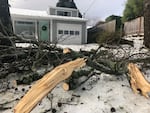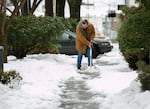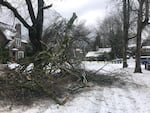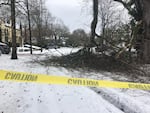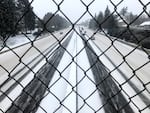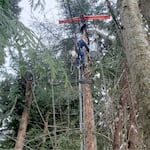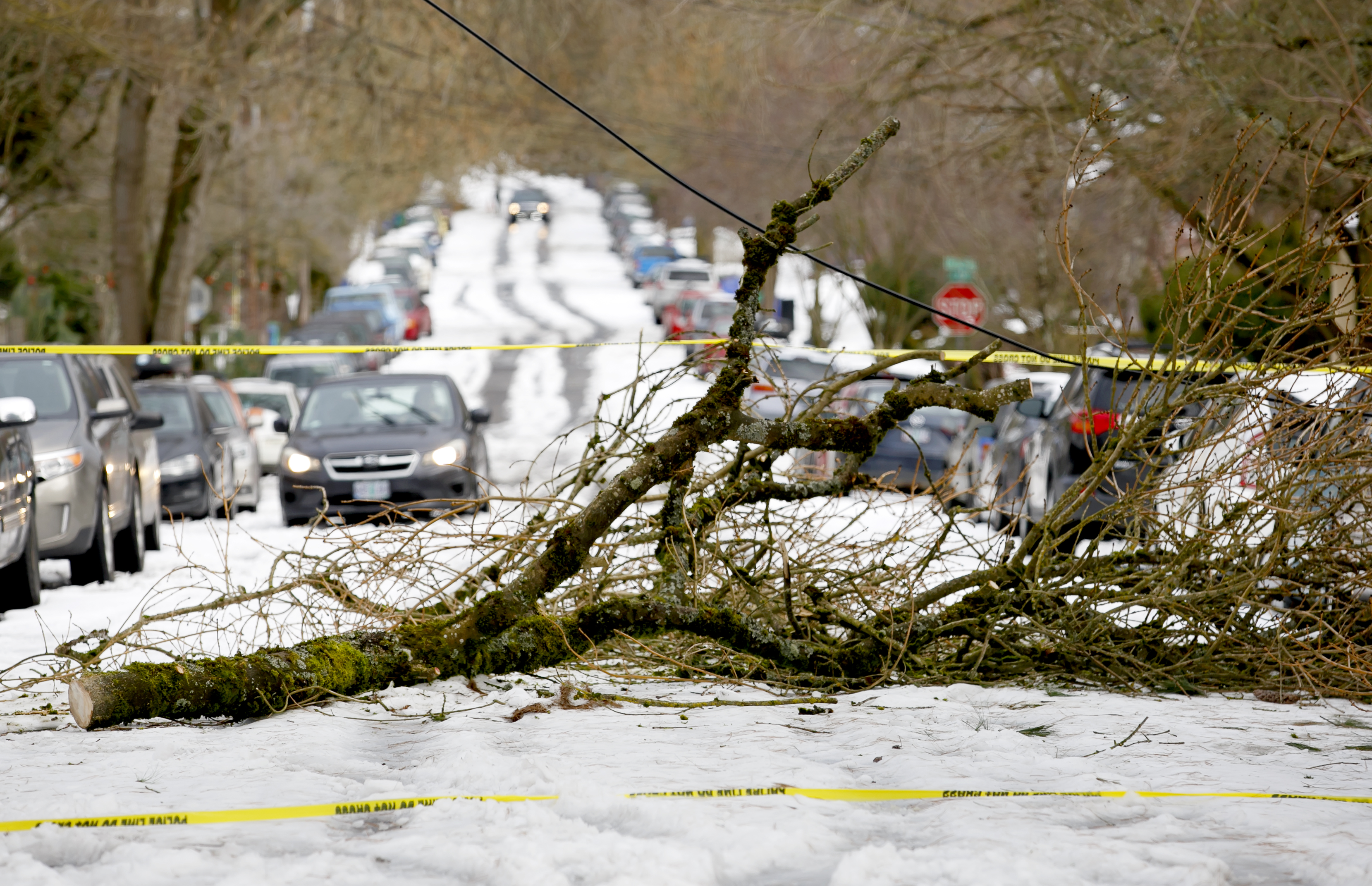
A large tree limb is tangled in a power line in Portland on Feb. 16, 2021.
Kristyna Wentz-Graff / OPB
Oregon was plagued by severe weather earlier this month. Snow fell. Trees crashed. And power lines were caught in the middle. Power outages swept across parts of the state, leaving thousands of residents without electricity.
It’s been nearly six decades since Oregon was last pummeled by winter weather so severe. But, experts warn that as climate change persists, extreme weather will occur more frequently and so too will the outages.
Robert McCullough, an energy consultant, joined “Think Out Loud” this week to explain what he thinks Oregon can do to ensure a more resilient power grid.
Here are four takeaways:
Trim trees
“For those of us who live in the neighborhoods with trees, these winter storms take out the lines because the tree limbs break,” McCullough said. Pruning trees beforehand can minimize this risk, but, he added “that’s not been done enough.”
“We need to work more on the tree trimming issues,” he said.
Put wires underground
“Utilities have avoided undergrounding because it’s expensive,” McCullough said. But, he added, it will be needed in the future.
McCullough named Tacoma, Washington as a place that’s doing this right. When the city digs up the ground to fix sewer issues, it also places power lines underground. In Portland, McCullough says the lack of city coordination has played a role in a slow response to undergrounding electricity.
“We have lots of different players and not much organization to put them together,” McCullough said.
Cost is a major factor slowing down the undergrounding process too. While about half of PGE’s distribution system is already underground, moving the remaining parts anytime soon will be unlikely, OPB reported.
Still, as the climate changes, Oregon could be left in a game of catch up.
“More extreme weather is on the way. This is part of global warming. It’s not a surprise,” McCullough said. “Every scientist agrees with it. And so we really have to start thinking ahead.”
Address wildfires sparked by power lines
“One of the largest transmission lines in the world stretches from The Dalles to San Francisco. That line contains enough power to serve seven million homes on a daily basis,” he said. “Outages along that line are tremendous fire risks.”
The 2019 Kincade Fire that roared through Sonoma County in California was caused by transmission lines. And if Oregon doesn’t take action, the state could face a similar disaster, says McCullough.
Oregon needs to clear “the region around the line so that a failure will not set off a fire,” McCullough said.
It also needs to enhance communication with utility companies to help slow or stop a wildfire sparked by a faulty power line. Oregon should also spend more time clearing fallen tree limbs and other potential kindling near power lines to keep wildfires from spreading.
“We need to focus on that before we have an experience as bad as California,” he said.
More investment in renewable energy
Renewable energy sources are available, but Oregon needs to spend more time investing in it.
“It is a different technology. Wind and solar aren’t always present,” McCullough said. “You can have a quiet day without a sun. So we are adjusting to a variety of new technologies as we go along. And that is going to be work.”
And the next frontier? Batteries large enough to power homes.
“They’re not really very available yet in Oregon,” says McCullough, “But that is one of a number of carbon free technologies that we need to investigate.”
Tesla sells a “Powerwall,” which is a battery that pairs with solar panels. It stores energy and detects power outages, according to the company. Tesla touted that Texas homes powered by the batteries were largely unaffected by the mass outages.
“As we move along, battery technology is the next big thing and it’s moving ahead very, very quickly.” McCullough said.
To listen to the entire interview, press play near the top of the page.
Contact “Think Out Loud®”
If you’d like to comment on any of the topics in this show, or suggest a topic of your own, please get in touch with us on Facebook or Twitter, send an email to thinkoutloud@opb.org, or you can leave a voicemail for us at 503-293-1983. The call-in phone number during the noon hour is 888-665-5865.




